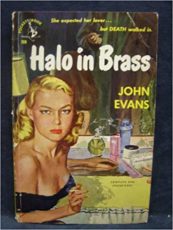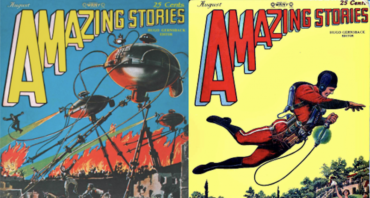
Even during his lifetime, Howard Browne (1908-1999) was not well known outside of his given fields. His novels, including his best detective fiction, were written under pseudonyms, and his work as editor and Hollywood writer, through credited, remained mostly unknown, except by those in the business.
During his long lifetime Browne published hundreds of stories in science fiction and detective magazines, along with several novels. He wrote dozens of television shows including Mission Impossible, Run for Your Life, Maverick and Cheyenne, and three of his film scripts were produced: Portrait of a Mobster with Vic Morrow; The St. Valentine’s Day Massacre with Jason Robards and George Segal; and Capone, starring Ben Gazzara. He also wrote radio scripts in the late 1940s.
His day job, before he went to Hollywood, was as an associate editor under Ray Palmer and then editor for Ziff-Davis pulp magazines, which included Amazing Stories, Fantastic Adventures and other lesser known fiction magazines.
Richard A. Lupoff interviewed Howard Browne at Browne’s home in Southern California some time in the mid 1980s (the cassettes aren’t labeled). This was Browne’s only radio interview, and only the second extant interview on record (the other appeared in Locus Magazine). After he retired, Howard Browne taught a couple of college classes and worked on a big Chicago novel that never saw publication.
Most of his work is out of print today, though his four noir novels, in the style of Raymond Chandler and featuring a detective named Paul Pine, are available in a small press edition published this past spring by Haffner Press, with an introduction by Richard A. Lupoff.
If you go to Imdb, you’ll find a long list of his television shows, many of which can be found streaming. Curiously, his novel Thin Air formed the basis for his first television credit, on the show Climax in 1955, and his last, for an episode of Simon and Simon in 1982. Thin Air was also the basis for an episode on yet a third program, The Rockford Files.
Two minor points: Browne says he never wrote for Hawaiian Eye, yet IMDb claims he wrote an episode, and he says he retired in 1973 but his credits extend to 1975.
The interview has now been remastered and re-edited, and is presented for the first time in thirty years.
Feedback on this and other podcasts is appreciated. You can write to [email protected].



